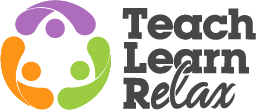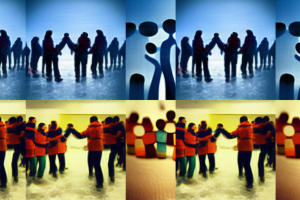Blind or partially sighted students rely mainly on aural, kinaesthetic and tactile learning methods. Some techniques recommended for teaching them are also widely used with students with no disabilities, but require more detailed planning. I have found these introductory tips very helpful when planning ESOL lessons for a blind student.
- Detailed initial assessment is important as you learn about medical aspects of the disability (eg. if they could see before), know how to act in an emergency situation or to know your student’s educational background.
- Encourage independence, but do risk assessment all the time.
- Be specific when giving instructions, use descriptive language, eg. It’s in front of you, The chair has arms, etc.
- Model behaviours and cultivate routines.
- Use tactile (eg. handmade handouts) and auditory materials (eg. songs, rhymes, repetition). Use real objects, if possible.
- Use significant/relevant topics. Group vocabulary topically.
- Use voice recorders or Braille machines as note takers.
- Do frequent re-caps and have frequent breaks.
- Introduce new things and abstract concepts in meaningful steps – it is easy to confuse a student if the lesson is not planned carefully. Use student’s first language (for lower levels if possible) to aid explanation and understanding.
- Don’t avoid words and phrases such as see, look or watch (yes, you may feel embarrassed sing them). That way you don’t hurt the sensibility, but according to Aiazzi, “avoiding to mention these verbs of perception and the actions they imply makes the blind or visually impaired only feel more conscious of their disability”. Blind people can also ‘see’, ‘look’ and ‘watch’, not obviously through the sight but through the sense of touch, which is their privileged way of approaching the outer world.
Remember that partnership work with other professionals has a lot of advantages. Ongoing communication, cooperation and discussions as well as sharing opinions and asking for advice is always extremely useful.
Have you got similar experiences? What else would you add to this list? Please share your thoughts in the comments section below.






Add Comment